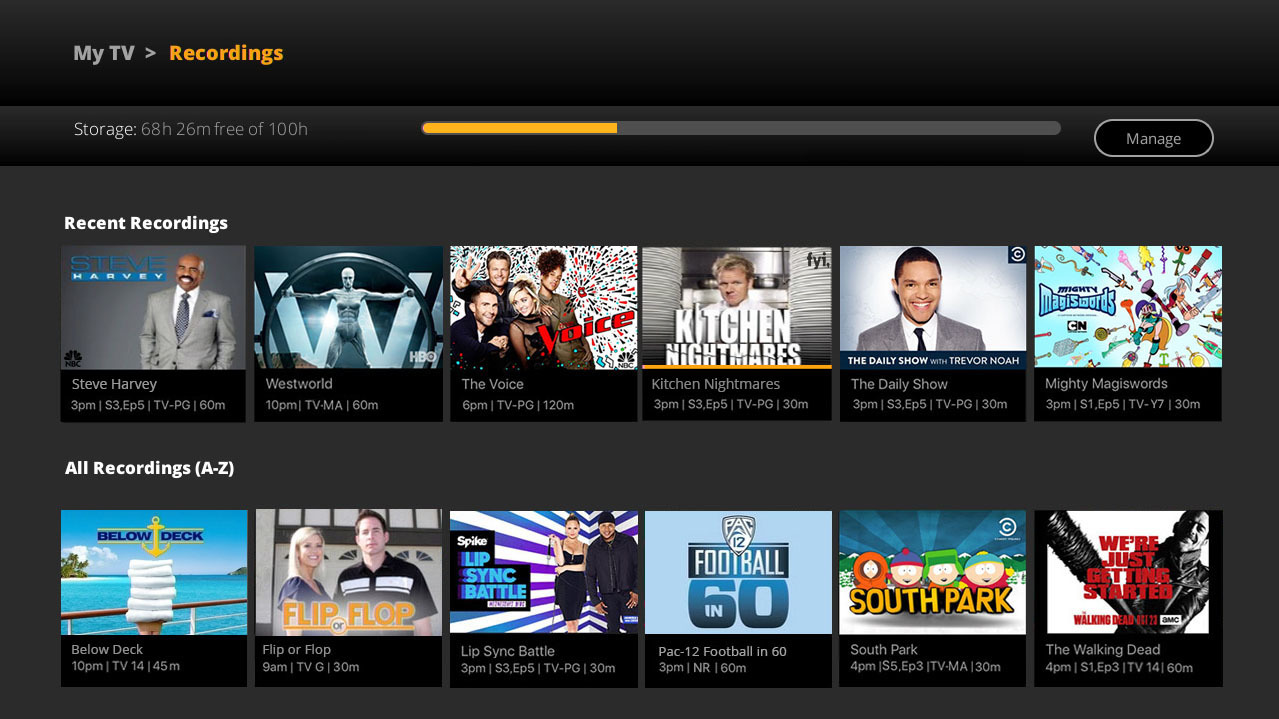Starting sometime in December, Dish-owned Sling TV will begin beta-testing cloud DVR functions, closing an important gap with its main competitor in internet TV, Sony's PlayStation Vue.
During the beta, the technology will initially be available only to subscribers using Roku devices — including TVs with Roku built in, Sling said. People who meet this criteria can apply for a beta invite.
Test accounts will support to 100 hours of recording with no expiration date. Instead, Sling servers will automatically delete the oldest recordings as needed. Multiple shows and movies will be recordable simultaneously, and saved material will automatically appear in the Roku interface's "My TV" screen.
Sling said that it's working on more DVR options, including storage upgrades, but cautioned that for now recording won't be available on all channels. There's no indication of when the technology might come to other platforms like the Apple TV.
PlayStation Vue watchers have long enjoyed DVR functions, but with a 28-day limit on all recordings.
 Roger Fingas
Roger Fingas








 Charles Martin
Charles Martin
 Christine McKee
Christine McKee
 Wesley Hilliard
Wesley Hilliard
 Malcolm Owen
Malcolm Owen
 Andrew Orr
Andrew Orr
 William Gallagher
William Gallagher
 Sponsored Content
Sponsored Content








14 Comments
Later today at 4pm when AT&T announces their Direct TV NOW streaming service, hope it is worth considering at already announced $35 for 100 channels package and comes with cloud DVR and live TV pause function. SLING has good approach but besides their $5 add-on packages; it needs to offer single channel add-on from $0.99-$3.99 for regular cable TV channels missing from those base(orange,blue) packages..Idea of cable cord cutting is choices at reasonable prices and when,where and how you want to watch. In order to become wide spread adoption of IPTV streaming, they have to offer win-win packages otherwise OTA delivers bunch of channels for free..
Cool story but the day Vue came out I dropped Sling like a bad habit. They don't offer enough local live channels, and their UI is unusable.
Does this spell the impending demise of TiVo? Instead of having to select specific channels to record at different times locally, why can't The Cloud record everything, all the time, and you just on-demand whatever you want? This is where we're going, right?